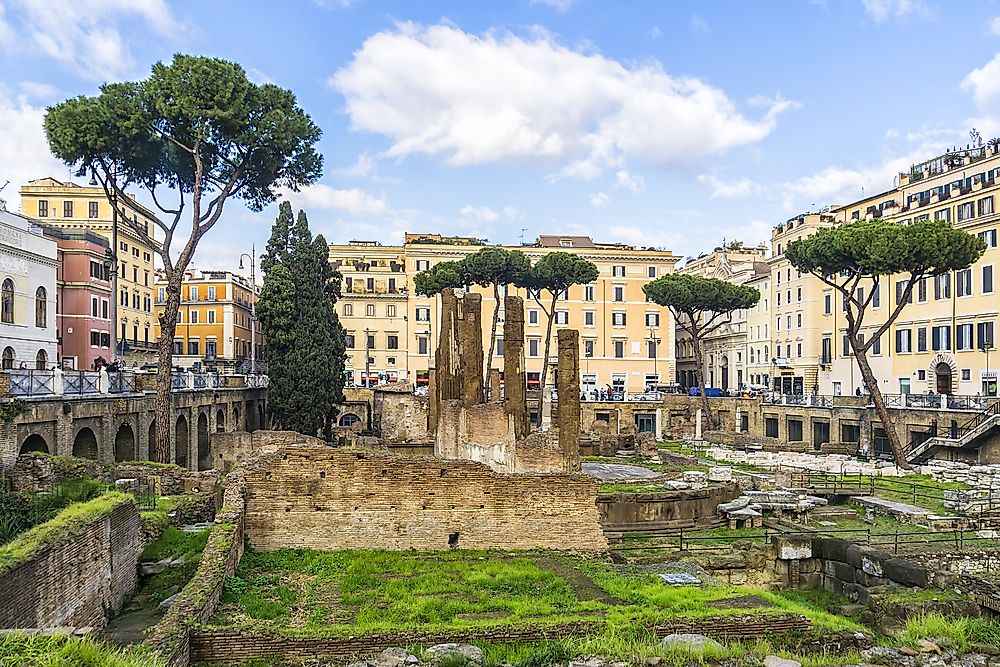In Ancient Rome Which Type of Assembly Could Declare War?

In the ancient Roman Republic (509-27 BCE), the Roman Assemblies were key institutions that acted as the cogs which made the Roman legislative branch function and through which all legislation was theoretically passed. There were three assemblies operated on the basis of ordinary citizens casting all ballots. They had strong checks on their power by the executive branch and by the Roman Senate. There three assemblies were the Council of the Plebs (Concilium Plebis), the Tribal Assemblies (Comita Tributa), and the Centuriate Assembly (Comitia Centuriata).
How Was the Centuriate Assembly Formed?
In the Roman Republic, the power to pass laws was given to what would become the three assemblies mentioned in the opening. The first such legislative body was the Comitia Curiata, which dated back to the days of the Roman Kingdom (753-509 BCE). Eventually, it evolved into the Centuriate Assembly (Comitia Centuriata) after the republic was formed.
Following the last king of Rome, Lucius Tarquinius Superbus (?-495 BCE), being overthrown by Lucius Junius Brutus (?-509 BCE), the original Comitia Curiata, representing the three major tribes, lost the right to enact laws. However, they did temporarily retain the power of lex curita de imperio. This gave them the authority to confirm the naming of the magistrates, as well as witness the appointment of priests, adoptions, and wills.
The Powers of the Centuriate Assembly
Over time, the Comitia Curiata became mostly ceremonial, and in its place emerged the Centuriate Assembly, another type of wealth-based assembly. The membership of this assembly was divided into centuries (one hundred men), with 373 men in total. Each century voted as a block, with the majority of votes in any Century decided how that Century voted.
Each Century received one vote, regardless of how many electors each one held. Once a majority of Centuries voted in the same way on a given measure, voting ended, and the issue was decided. The Centuriate Assembly started out as a reflection on military status but evolved to reflect the wealth of the centuries, with the wealthier ones being able to outvote the poorer ones.
The Centuriate Assembly would meet in the Campus Martius (Field of Mars), instead of in the Forum like the other assemblies did. The duties of this assembly included electing various types of the highest-ranking magistrates like censors, consuls, and praetors. They also enacted laws that granted constitutional command authority to those high-rank magistrates they elected.
The Centuriate Assembly were also able to invoke the death penalty on Romans who were arraigned on political charges. They served as the highest court of appeal in certain judicial cases, especially ones involving perduellio (high treason). They also ratified the results of a Census.
Only the Centuriate Assembly Could Declare War
Arguably the most important power of the Centuriate Assembly was that they were the group that was able to declare war and peace in the Roman Republic. This was so due to the assembly starting out as a reflection on military status, so naturally their opinion on whether to declare war or not mattered.
A college of priests (the fetiales) would be sent to the state that offended the Romans and would report in legalistic language what is owed to the Republic. The offending state would be given 33 days to decide whether to meet Roman demands for reparation.
If the demands were not met, the fetiales would give their report to the Senate, who debated whether to go to war. If the Senate carried to motion to go to war, they would instruct the consuls to sacrifice to the gods for a successful outcome. The consuls would then take the matter to the Centuriate Assembly, which had the ultimate say in approving war or approving peace.











